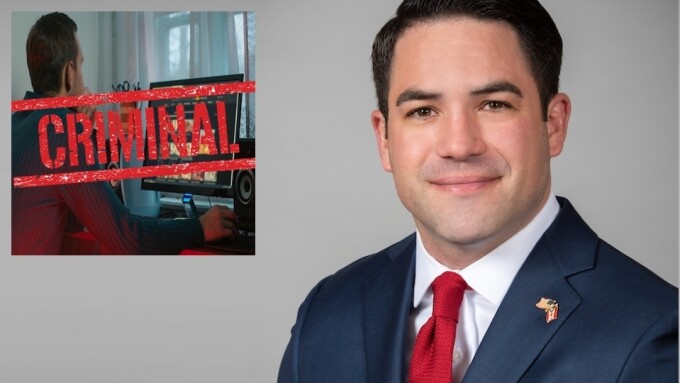COLUMBUS, Ohio — A Republican lawmaker in Ohio this week introduced an age verification bill called the “Innocence Act,” which observers say could make posting any nude image online without verifying age a felony.
According to a statement released by the office of the bill’s author, State Rep. Steve Demetriou (R-Bainbridge Township), the goal of House Bill 295 is to “require a more rigorous age verification process to prevent minors from viewing sexually explicit material on the internet in Ohio.”
The statement notes that the legislation would “require any person in the state to verify their age prior to accessing pornographic websites and would make it illegal for anyone under the age of 18 to view sexually explicit content.”
Demetriou stated that he believes all online pornography “is a threat to Ohio children,” claiming that unspecified studies have shown that “pornography is a pathway to mental health issues for children and can be a precursor to sexual aggression.”
“Additionally, it is no secret that the porn industry and human trafficking often overlap,” Demetriou added, citing a widely debunked anti-porn propaganda talking point.
The Innocence Act would allow the state to charge “pornography distributors” with a third-degree felony for “failing to verify the age of a person accessing the adult content” while minors who attempt to access sexually explicit material by falsifying their identity would be charged with a fourth-degree misdemeanor.
Other stipulations address the posting of sexually-themed deepfakes, which the legislator is proposing to charge as a third-degree felony.
Ohio 'Taking Age Verification One Step Further'
Following Demetriou’s announcement, Free Speech Coalition (FSC) Director of Public Affairs Mike Stabile posted on X.com, “A newly introduced Ohio bill takes age-verification campaign one step further — it effectively makes it a felony to post nudes. And teens that try to get around age-verification would be threatened with arrest.
“Unlike other bills, which focus at least theoretically on adult sites, the ‘Innocence Act’ applies to everything on the internet — though, as usual, definitions are vague and confusing,” Stabile added.
Concern that the Innocence Act could criminalize any online nude is based upon the broad leeway it gives to politically and religiously motivated prosecutors to charge persons or companies online for posting “material harmful to juveniles.”
Ohio’s current statute penalizing sex offenses, last updated in 2004, defines “harmful to juveniles” as “any material or performance describing or representing nudity, sexual conduct, sexual excitement or sado-masochistic abuse in any form to which all of the following apply: (1) The material or performance, when considered as a whole, appeals to the prurient interest of juveniles in sex; (2) The material or performance is patently offensive to prevailing standards in the adult community as a whole with respect to what is suitable for juveniles; (3) The material or performance, when considered as a whole, lacks serious literary, artistic, political, and scientific value for juveniles.”
By creating this explicit criminal liability, the proposed Innocence Act would encourage state actors to police free speech around sexual matters of which they do not approve — LGBTQ+ content is currently facing such attacks in several GOP-majority states — under the guise of eradicating “online harms.”
Demetriou’s proposed bill states that “no organization who sells, delivers, furnishes, disseminates, provides, exhibits, or presents any material or performance that is obscene or harmful to juveniles on the internet shall recklessly fail to verify that any person attempting to access the material or performance that is obscene or harmful to juveniles is eighteen years of age or older through reasonable age verification methods.”
Under the act, those found in violation of that section would be “guilty of failure to verify age of person accessing materials that are obscene or harmful to juveniles, a felony of the third degree.”
The confusing “no organization” language may or may not exempt individuals, but it certainly appears to create liability for any platform or website that posts or allows users to post nudity, and also for any third-party company, group or nonprofit that may post nudity anywhere without first signing up for costly age verification solutions.






